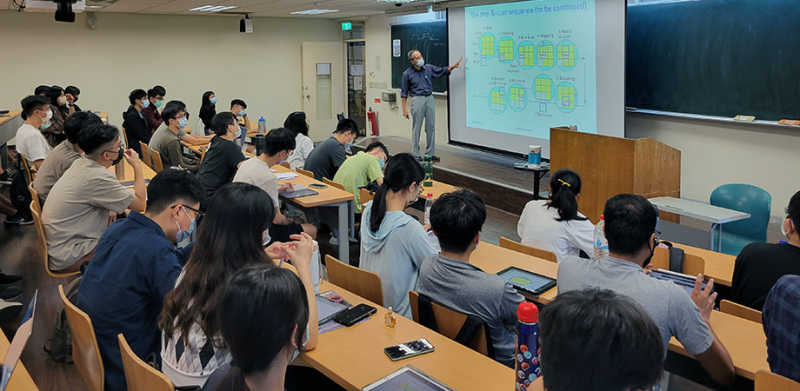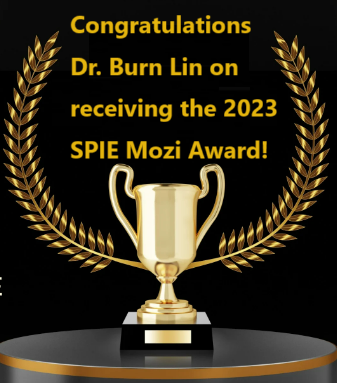最新訊息:賀終身成就獎得主林本堅院士榮獲SPIE2023年度墨子獎
次閱讀
The SPIE Society Awards:
Honoring transformative advancements in a variety of professional areas — including medicine, astronomy, lithography, optical metrology, optical design, and community leadership — the Society's awards recognize technical accomplishments as well as committed service to SPIE and support of its organizational mission. This year's 21 award recipients represent an exciting range of stellar achievements across light-based sciences and technologies. Meet the 2023 SPIE Society Award recipients.
Burn Lin: The 2023 SPIE Mozi Award
The SPIE Mozi Award recognizes outstanding discoveries, inventions, or scientific and technical achievements in the field of optics
SPIE墨子獎:Burn J. Lin (在半導體製造的浸沒式微影技術方面取得重大的科學成就)

(In an image from 11 November 2022, Lin teaches a graduate class in nanolithography at the College of Semiconductor Research at National Tsing Hua University in Hsinchu, Taiwan. The course is based on his SPIE Press book, OPTICAL LITHOGRAPHY: HERE IS WHY.)
Burn Lin, a Distinguished Research Chair Professor at National Tsing Hua University (NTHU) and director of the Tsing Hua-TSMC Joint Research Center, has been extending the limit of optical lithography for half a century. While working for IBM — starting in 1970 — Lin became the first to propose immersion lithography, a technique that became viable in the 1980s. In 1991, Lin left IBM to found Linnovation, Inc., and began working for Taiwan Semiconductor Manufacturing Company (TSMC) in 2000. His exploration of immersion optical lithography technique has extended Moore's law by six generations (10 years) for element sizes from 40, 28, 20, 16, and 10 to 7 nm. Other contributions include introducing resolution and depth-of-focus scaling equations to guide lithography advances; simulating 3D images from partially coherent illumination on 2D objects under practical conditions (static and vibrated, unpolarized and polarized illuminations) to make optimizations possible; inventing exposure-defocus methodology for precise quantification of the processing window; and laying out the roadmap from 2-mm to 65-nm optical lithography.
An SPIE Fellow since 2003, Lin was the first recipient of the SPIE Frits Zernike Award for Microlithography in 2004. In 2017, during SPIE Advanced Lithography, Lin was honored on the 30th anniversary of the Optical Microlithography conference in recognition of serving as the first chair of the conference in 1988, and for his outstanding contributions to the lithography community. An author of several SPIE proceedings papers, Lin was the founding editor of SPIE’s Journal of Microlithography, Microfabrication, and Microsystems (JM3). In 2010, Lin’s Optical Lithography: Here Is Why, which covered the image-formation physics of a lithographic system and an overview of many next-generation technologies, was published by SPIE Press. A second edition with new material was published in 2021.
“Professor Lin taught an ‘Innovative Lithography’ course, and a ‘Semiconductor Lithography’ course in our university,” says Ta-Jen Yen, vice president for Global Affairs at NTHU. “He taught similar courses at the National Taiwan University and the National Chiao Tong University. The students gave favorable feedback on his inspiring lectures on challenging issues in modern-day nanometer semiconductor patterning theory and practice. His ideas and proposals have also been gainfully employed by key semiconductor and photonic companies. Based on his success in technology and education, he was appointed Dean of the College of Semiconductor Research by the NTHU president in 2021 in order to found this prestigious new college for the country.”
相關連結:
